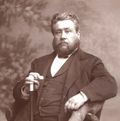In any case thou shalt deliver him the pledge again when the sun goeth down, that he may sleep in his own raiment, and bless thee: and it shall be righteousness unto thee before the LORD thy God.(Deuteronomy 24:13)
Thou shalt not oppress an hired servant that is poor and needy, whether he be of thy brethren, or of thy strangers that are in thy land within thy gates:(Deuteronomy 24:14)
At his day thou shalt give him his hire, neither shall the sun go down upon it; for he is poor, and setteth his heart upon it: lest he cry against thee unto the LORD, and it be sin unto thee.(Deuteronomy 24:15)
The fathers shall not be put to death for the children, neither shall the children be put to death for the fathers: every man shall be put to death for his own sin.
Thou shalt not pervert the judgment of the stranger, nor of the fatherless; nor take a widow's raiment to pledge:(Deuteronomy 24:17)
But thou shalt remember that thou wast a bondman in Egypt, and the LORD thy God redeemed thee thence: therefore I command thee to do this thing.(Deuteronomy 24:18)
When thou cuttest down thine harvest in thy field, and hast forgot a sheaf in the field, thou shalt not go again to fetch it: it shall be for the stranger, for the fatherless, and for the widow: that the LORD thy God may bless thee in all the work of thine hands.(Deuteronomy 24:19)
Other publications related to "Deuteronomy 24:16":
Deuteronomy 24:16 - Cross Reference
The soul that sinneth, it shall die. The son shall not bear the iniquity of the father, neither shall the father bear the iniquity of the son: the righteousness of the righteous shall be upon him, and the wickedness of the wicked shall be upon him. (Ezekiel 18:20)
And it came to pass, as soon as the kingdom was confirmed in his hand, that he slew his servants which had slain the king his father. (2 Kings 14:5)
But he slew not their children, but did as it is written in the law in the book of Moses, where the LORD commanded, saying, The fathers shall not die for the children, neither shall the children die for the fathers, but every man shall die for his own sin. (2 Chronicles 25:4)
In those days they shall say no more, The fathers have eaten a sour grape, and the children's teeth are set on edge. (Jeremiah 31:29)

